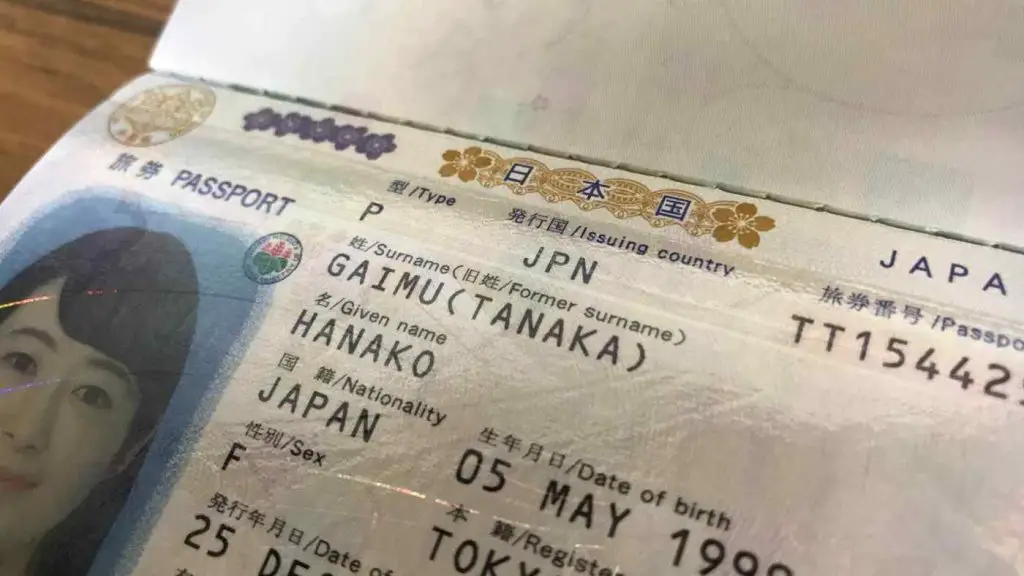Surname and maiden name refer to the family names that individuals inherit from their parents and use to identify their lineage and connection. When it comes to personal identity, the two names play a significant role.
If you are looking to understand the importance and distinction between these names, this article will provide you with in-depth insights. Exploring the origins and significance of surnames and maiden names, as well as how they differ and can be used, will help shed light on their value and importance.
Whether you are interested in genealogy, marriage customs, or simply finding out more about your own name, this article will serve as a valuable resource. So, let’s dive in and uncover the fascinating facets of surnames and maiden names.
Why Surname And Maiden Name Matter In Today’s Society
Surname and maiden name hold great significance in today’s society, impacting both personal identity and cultural heritage preservation.
Personal identity is deeply intertwined with one’s name. A surname acts as a unique identifier, connecting individuals to their family history and lineage. It carries a sense of pride and belonging, marking one’s place within a larger social construct. Similarly, the maiden name holds particular importance for women, as it signifies their transition from one phase of life to another.
Furthermore, the utilization of surnames and maiden names helps preserve cultural heritage. These names often carry historical and traditional connotations, serving as a constant reminder of one’s roots. They serve as a link to the past, enabling individuals to pass down their family’s rich stories and traditions to future generations.
Defining Surnames And Maiden Names
Surnames, also known as last names or family names, are inherited names that are passed down from one generation to another. They serve as a way to identify individuals within a family unit or lineage. On the other hand, maiden names refer to the family name that a woman is born with before marriage. These names are traditionally replaced with the spouse’s surname upon marriage, but some women choose to keep their maiden name as a way to preserve their identity.
Surnames have different origins and can vary based on cultural or regional factors. They can be derived from a person’s occupation, geographic location, or even a characteristic trait. Maiden names, on the other hand, trace back to a woman’s paternal family line. They hold historical significance, as they often provide clues about a person’s ancestry and genealogy.
Legally, changing or adopting a new surname requires following specific procedures and documentation. While there are no strict legal requirements concerning the use of maiden names, societal norms and traditions may influence a woman’s decision. Some cultures have distinct customs and expectations surrounding the use of surnames and maiden names, often reflecting societal values and gender roles.
Cultural And Social Factors Shaping Surname And Maiden Name Preferences
In understanding the preferences for surnames and maiden names, it is essential to consider the cultural and social factors that influence these choices. These factors vary greatly across different societies, with patriarchal and matrilineal societies being particularly influential.
In patriarchal societies, where male dominance is prevalent, it is common for women to adopt their husband’s surname upon marriage. This practice reinforces traditional gender roles and signifies the transfer of ownership from the father to the husband. On the other hand, in matrilineal societies, where descent is traced through the female line, women are more likely to retain their maiden name after marriage, as it maintains their connection to their matrilineal lineage.
Another important aspect to consider is the intersectionality of cultural identities and the influence of identity politics. Individuals from culturally diverse backgrounds may prioritize preserving their cultural heritage and ancestral connections through surname choices. This can manifest in individuals opting to hyphenate or combine surnames, or even choosing entirely new names that better reflect their cultural identity.
| Patriarchal Societies | Matrilineal Societies |
|---|---|
| Women adopt husband’s surname upon marriage | Women retain their maiden name after marriage |
| Reinforces traditional gender roles | Maintains connection to matrilineal lineage |
Personal Factors Affecting Surname And Maiden Name Choices
Marriage is a significant life event that often prompts individuals to make decisions about their surnames and maiden names. The choice to change or retain one’s surname and maiden name can be influenced by a variety of personal factors. Some individuals may choose to adopt their spouse’s surname to signify the union of marriage and a shared identity. Others may decide to keep their maiden name as a symbol of their personal identity and independence. Additionally, divorce can introduce further complexities to the issue, as individuals may choose to revert back to their maiden name or maintain the surname acquired during marriage. In the case of remarriage, individuals may face the decision of changing their surname once again. These personal factors play a significant role in the choices individuals make regarding their surnames and maiden names throughout their lives.
Examining The Evolution Of Women’s Surname Choices
Feminism and empowerment movements have brought about a shift in traditional naming conventions. Increasingly, women are opting for non-conventional approaches when it comes to choosing their last names. The rise of hyphenated last names has become a prominent trend in recent years. By combining both their maiden name and their spouse’s surname, women are establishing a sense of identity that embraces both their individuality and their commitment to their partner.
This choice reflects the values of feminism and women’s empowerment, as it allows women to maintain their familial heritage while also acknowledging their own accomplishments. Hyphenated last names symbolize a balance between tradition and autonomy, honoring both the past and the future. Moreover, this trend challenges societal norms, encouraging others to question and reconsider traditional naming conventions. By examining the evolution of women’s surname choices, we can witness the empowerment and agency that these decisions bring about in women’s lives.

Credit: bellebrita.com
Impact Of Changing Gender Roles On Men’s Surname Choices
A shift in traditional gender roles has led to men reconsidering their choices when it comes to their surnames. With role reversals and cultural shifts, men are facing new considerations both personally and professionally.
Personally, men are now more open to taking their partner’s surname, recognizing the importance of equality within their relationship. This decision not only reflects a commitment to shared values but also challenges traditional expectations.
Professionally, men may also choose to change their surname to align with their partner’s for various reasons. In some cases, this decision may be driven by the desire to project a unified front or to maintain continuity in a professional context.
Ultimately, the impact of changing gender roles on men’s surname choices is a testament to evolving cultural norms and a growing awareness of the importance of equality in personal and professional relationships.
Preserving Family History And Ancestry
Preserving, understanding, and celebrating one’s family history and ancestry is a meaningful journey that can provide insight into our personal and cultural identities. By tracing our lineage and genetic heritage, we can uncover fascinating stories of our ancestors and gain a deeper understanding of our roots. This exploration allows us to connect with our cultural traditions and practices that have been passed down through generations.
Discovering our surname and maiden name is an essential component of this journey. The surname carries with it a history that dates back centuries, often representing the family’s occupation, location, or even a personal characteristic. Similarly, the maiden name holds the key to uncovering the lineage of women in a family, highlighting their individual identities and contributions.
By understanding our family history, we can forge a stronger connection to our heritage and establish a sense of belonging. Exploring and recognizing the customs, traditions, and values passed down through generations allows us to appreciate and honor our ancestors’ contributions more fully. Embracing these roots not only preserves our cultural heritage but also strengthens our personal identity.
Challenges And Opportunities In Genealogical Research
Genealogical research can be both challenging and full of opportunities. One common challenge faced by researchers is dealing with maiden name variations while tracking ancestors. Women often changed their surnames upon marriage, making it difficult to trace their lineage. However, this challenge also presents an opportunity for researchers to explore different records and sources.
By utilizing surname and maiden name records, researchers can uncover valuable information about their ancestors. Census records, marriage certificates, and obituaries can provide clues about maiden names. Additionally, online databases and genealogical websites offer access to historical records, making it easier to track down ancestors.
Maiden name variations can include spelling variations, anglicized names, or entirely different surnames. It is important for researchers to be aware of these variations and conduct thorough searches to ensure accuracy in their genealogical findings.
| Maiden Name Variation | Tracking Ancestor |
|---|---|
| Smith | Maiden name: Jones Married name: Smith |
| Johnson | Maiden name:
Johnsen Johnston Jansen |
Overall, surname and maiden name research can unlock new information and lead to exciting discoveries in genealogy. By overcoming the challenges posed by maiden name variations, researchers can piece together their family history and gain a deeper understanding of their roots.
Exploring Alternative Last Name Options
Discover unique last name options by exploring alternative surname and maiden name possibilities. Uncover new ways to personalize your identity and embrace your heritage.
In today’s modern society, individuals are increasingly seeking alternative last name options that better reflect their identity and personal choices. Traditional surnames, commonly inherited from paternal lineage, are no longer the only option when it comes to naming oneself or one’s family. This blog post will delve into two distinct alternatives: matrilineal surnames and combining names in unique ways.
Matrilineal Surnames and the Rise of Matronymics
Matrilineal surnames, also known as maternal surnames, are growing in popularity as individuals embrace their maternal heritage. These surnames are inherited from the mother’s side and can serve as a way to honor and preserve the family’s matrilineage. Matronymics, the practice of using a mother’s name as a surname, is also gaining traction as a means of highlighting the importance of the maternal line.Combining Names in Unique Ways
Another trend in alternative last names is the creative combination of names. Couples may choose to blend their surnames, creating a new hybrid name that represents their shared identity. This unique and personalized approach to naming can be a symbol of unity and equality within a marriage or partnership. To conclude, the traditional concept of surname and maiden name is evolving as individuals explore alternative options. Matrilineal surnames and the creative combination of names provide opportunities to honor maternal lineage and create a name that embraces personal identity.Legal Aspects And Practical Considerations In Changing Names
Legal Aspects and Practical Considerations in Changing Names:
Changing your name can be a complex process that involves legal considerations and practical implications. Whether it’s due to marriage, divorce, or personal preference, understanding the necessary procedures and documentation is crucial.
When opting for a name change, it’s important to research the legal requirements specific to your jurisdiction. Typically, this involves submitting an application to the appropriate government agency, often the courthouse or a government office. Required documentation may include a marriage certificate, divorce decree, or a court order for a name change.
Addressing the everyday implications of a name change is equally significant. It’s important to inform various parties, such as employers, financial institutions, and government agencies, about the change. Update your identification documents, including driver’s license, passport, and social security card, as well as notify banks, credit card companies, and other relevant entities about the change in your name.
| Considerations | Actions |
|---|---|
| Informing Employer | Contact HR department and provide necessary documentation |
| Updating Identification | Visit the local DMV and apply for a new driver’s license |
| Notifying Financial Institutions | Contact banks and credit card companies to update account information |
| Updating Legal Documents | Obtain a new passport and update social security card |
Making these changes can sometimes involve time, effort, and paperwork, but it’s a necessary step towards ensuring your new name is officially recognized. By understanding the legal procedures and addressing everyday implications, you can smoothly navigate the process of changing your surname or maiden name.
Frequently Asked Questions For Surname And Maiden Name
What Is The Difference Between Surname And Maiden Name?
A surname is the family name inherited from one’s parents, while a maiden name is a woman’s last name before marriage.
Why Is It Necessary To Know Someone’s Maiden Name?
Knowing a person’s maiden name can be helpful for genealogy research, legal purposes, and re-establishing contacts with old friends.
Can You Legally Change Your Surname After Marriage?
Yes, it is possible to legally change your surname after marriage through a process known as a name change or by applying for a marriage certificate with the new surname.
Do You Need To Update Your Identification Documents With Your New Surname?
Yes, it is important to update your identification documents, such as your driver’s license, passport, and social security card, to reflect your new surname after marriage.
Conclusion
The surname and maiden name hold significant importance for individuals, reflecting their heritage, family connections, and identities. Understanding the historical and cultural context behind these names can provide a deeper understanding of one’s personal story. By embracing and celebrating both names, we honor our ancestors and ensure their legacy lives on.
So, next time someone asks for your surname or maiden name, share it proudly and carry your family’s history with you.








